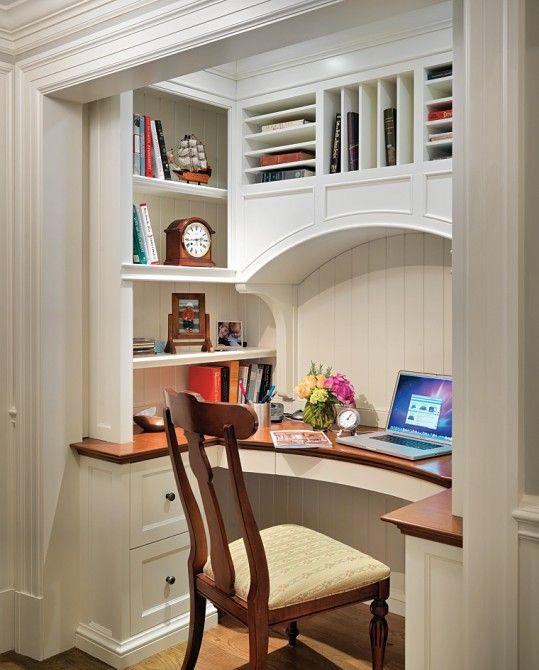Table of Content
The IRS introduced a second, much simpler method of calculating your home office deduction beginning in tax year 2013. If your current bedroom is doubling as your office for your home-based business, you cannot take the home office deduction. At the start of the pandemic, the number of people working from home increased significantly—but not all of them will qualify for the home office deduction.
The Tax Cuts and Jobs Act of 2017, however, banned such workers from taking the deduction from 2018 to 2025. With this method, you cannot deduct more than your gross income . For instance, if your home office is 15% of your home, you can deduct 15% of your utilities, rent, and insurance for the year. This is basically the normal home office method but is used for renting rather than home ownership.
How To Calculate Property Tax
But using the Section 179 deduction can help keep your tax liability in the current year as low as possible if your freelance income this year is unusually high. Abusiness assetis any property with a useful life of longer than one year that you use to produce income. Computers, software programs, and office furniture are all good examples.

This article will delve into the most common questions about this tax deduction. You can't deduct a percentage of the principal portion of your mortgage payments, but you can depreciate a portion of the cost of your house if you own your home. You can also deduct the cost of any repairs made directly to your office area. Expenses that relate to a separate structure not attached to the home may qualify for a home office deduction. They will qualify only if the structure is used exclusively and regularly for business. It would qualify as your principal place of business even if you only used your home office exclusively and regularly for administrative tasks only and do not have another location to perform these duties .
What makes an office an office?
Both techniques are based on the size of the home office, so you’ll need to measure its dimensions and calculate square footage. If you use the actual-expenses method and you own your home, you can take a depreciation deduction for the year for “wear and tear” on this part of your home. You can’t depreciate the cost or value of the land your home is on, but you can depreciate the portion of property taxes and mortgage interest for this business-only area. To calculate the tax deduction, the business may use a simplified option or an actual expenses option. Freelancers and others who operate their businesses from home can often claim a tax deduction for their home office expenses.
That’s why it’s important to get help from an experienced accounting firm. The elimination of miscellaneous itemized deductions is supposed to be temporary, expiring in 2026. Texas senator Ted Cruz last month introduced a bill to make permanent the elimination of miscellaneous itemized deductions while raising the limit of the standard deduction. This home office needs to be used only for your business — as in, it can't be a guest room with a desk in it — and you must be able to prove that you need an office for your work. The burden of proof for taking this deduction is on the taxpayer, so if you're audited, you will have to back up your claim to the IRS. In the simplified version, you can take $5 per square foot of your home office up to 300 square feet, giving the method a $1,500 cap.
How to simplify your entire coaching business
Use of our products and services are governed by ourTerms of Use andPrivacy Policy. The statements and opinions are the expression of the author, not LegalZoom, and have not been evaluated by LegalZoom for accuracy, completeness, or changes in the law. Form your business with LegalZoom to access LegalZoom Tax services. So if you spent $15,000 on all of the above during the year, you could deduct a prorated amount depending on the above calculation. The definition of home includes a house, apartment, condo, mobile home, boat, or similar property. It also includes structures on the property like an unattached garage, studio, or barn.
The reason to do it this way is that how much of your home expense you can deduct is based on your gross proceeds minus those personal deductions and minus your other business expenses. So you need to think about all your deductions before you think about deducting the home office itself. The regular version of the deduction is a bit more complicated, as you must keep track of all your actual expenses. You can write off up to 100% of some expenses for your home office, such as the cost of repairs to the space. The actual-expense deduction is used by businesses that have a larger space than 300 square feet or who want to get more deductions than the simplified method gives. To do this calculation, multiply the square footage of your home office by $5.
Tax Deductions to Take When Selling a Home
Standard deduction of $5 per square foot of home used for business . Even after you file your taxes, save all tax-related records for as long as the IRS might want to look at them. This is usually the three years from that year’s tax return due date or the date filed, or two years after the tax was paid. Direct expenses are those for just your home office business space, like painting or repairing the space.
SEP IRA and solo 401 plans can provide current-year tax deductions while also allowing investment gains to multiply without incurring additional tax until withdrawals begin. To use the regular home office method, first determine what percentage of your home is considered home office space. Then multiply this percentage by the total amount of actual expenses.
While employees who now work remotely may feel like they're missing out, the home-office deduction isn't generally leading to outsized savings for those who take it. Because of this calculation, people with larger homes may not get as much using this method, said Adam Markowitz, an enrolled agent and vice president at Howard L Markowitz PA, CPA in Leesburg, Florida. You can switch methods year to year and should try to calculate both to see which will yield a larger deduction. You don't have to be a homeowner to claim the deduction — apartments are eligible, as are mobile homes, boats or other similar properties, according to the IRS. There may be some confusion, as the home-office deduction was previously allowed for employees.

Responsive, decisive, forward-thinking – that’s Kreischer Miller. As remote and hybrid work models remain in effect, many clients have asked which deductions, if any, can be claimed for working from home. Next, you move on to the big stuff, what's called Section 179 property, such as a car. Starting with 2020, you can deduct up to a million dollars in total for Section 179 property. For example, a sports-utility vehicle has an annual deductible limit of $25,900. They're piling up over there in the corner, and they're part of your cost of doing business.
Office supplies, credit card processing fees, tax preparation fees, and repairs and maintenance for business property and equipment are also deductible. Still, other business expenses can be depreciated or amortized, meaning you can deduct a small amount of the cost each year over several years. Some people who work from home can take a tax deduction for their home office expenses, but many are not eligible for this break. It depends on whether you have a dedicated home office space where you don’t do anything else and whether you work for an employer or are self-employed.
Work-related expenses refer to car expenses, travel, clothing, phone calls, union fees, training, conferences and books. So really anything you spend for work can be claimed back, up to $300 without having to show any receipts. Furniture and other office equipment that you purchase to facilitate working from home are claimable on your income tax return. If the item is up to $300, this is super easy as you can claim the full cost of the item. Until the 2018 tax year, employees who worked from home could deduct specific expenses related to their jobs. The Tax Cuts and Jobs Act, which was signed into law on December 22, 2017, eliminated these deductions for anyone who works from home for an employer.
It also allows you to move some of the expense to future years when you might need the deduction more. It doesn't qualify as your "office" if it does double-duty as your family's TV room. The Internal Revenue Service calls this "regular and exclusive use." Information provided on Forbes Advisor is for educational purposes only. Your financial situation is unique and the products and services we review may not be right for your circumstances.


No comments:
Post a Comment